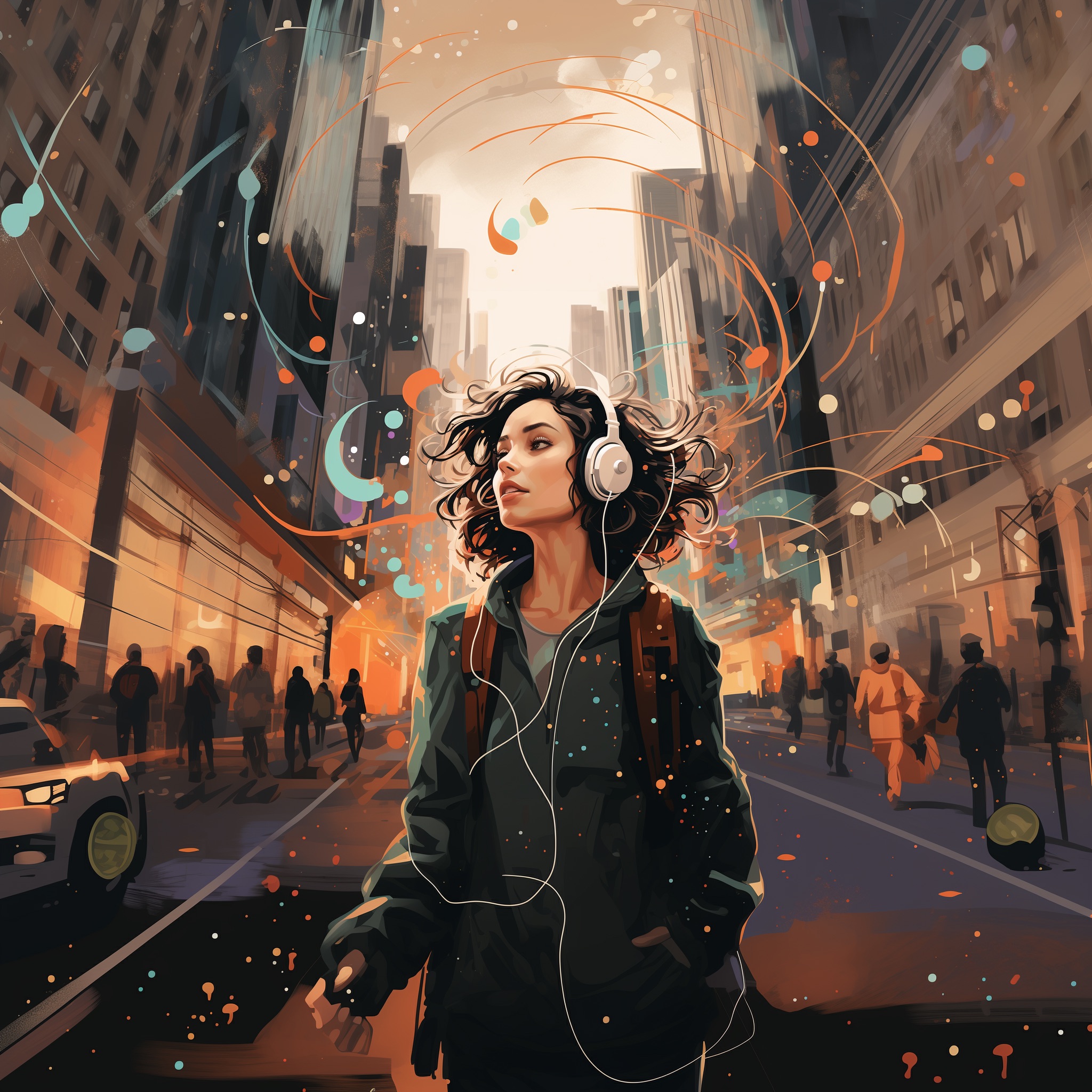In The soundtrack of here, Babak Fakhamzadeh created a mashup based on Radio Aporee, resulting in an ever-changing soundtrack of the urban space around you.
This sound walk is one of the shortlisted pieces in the Sound Walk September Awards 2023. However, because Babak is also co-founder of walk · listen · create, this piece is listed out-of-competition. Here, Babak discuss his work.
Before the World Wide Web existed, to be globally connected, I struggled with dialup modems and local (digital) bulletin board systems which distributed applications, games, and files via global hierarchical networks. Then, during the first few years of the web, giving its real-world background, the online creator mentality that I rolled into was one fostered by physical ‘computer club’ meet-ups, where cooperation and exchange were core principles.
It’s perhaps hard to believe, today, but before we were inundated with big tech, dark patterns, surveillance capitalism, and tech feudalism, the web consisted of material that, in large part, was open, collaborative, investigative, and experimental.
I cling to this mentality. In the early 2000s, I, and many with me, created scores of ‘mashups’, mixing together open data sources to create alternative solutions, applications, that were greater, combined, than the sum of their individual parts.
Before Facebook ruined it, and before Instagram seemed like the social media network for photographers done right, Flickr was that social media platform for photographers, done right. Flickr is still around, and, in my humble opinion, is still the best platform for sharing your photography. Though, sadly, with corporate funds and endless funding rounds having dried up for this platform now considered ‘old hat’, the requirement that now its members need to cover the exorbitant costs of large platforms, means that keeping the lights on at Flickr is expensive.
Either way, years before Flickr supported geotagging in photos, I put together a mashup to contextually match GPS coordinates with photos uploaded to Flickr, resulting in a continuously updating Google map with newly uploaded, and mapped, photos.
This seems trivial now, but 20 years ago, that was kind-of mind blowing.
I’ve not lost this creator spirit. And, I’m not the only one, hidden behind TikTok personalities and YouTube celebrities. With the ever-growing internet, the ever-growing number of internet users, and the ever-growing abuse of our online activity by big tech and capitalism, it has gotten harder to come up with fresh ideas, as well as to find usable data sources that, mostly, are now locked down by paywalls, crippled by exploitative technology companies, or simply not open to the public.
Many years ago, the platform that could have chosen to be the ultimate platform for sharing and collaboratively creating location-based audio, SoundCloud, discontinued the ability to attach location-based information to its media. The platform also almost went under several times, for reasons similar to those Flickr has been struggling with, and, though thankfully still sticking around, chose to kill off a hugely interesting part of functionality it had been offering at some point, the ability to publicly query, and map, sounds uploaded to its platform.
Meanwhile, showing how not having to dance to the tune of shareholders can result in longevity and stability, a platform that’s conceptually similar to SoundCloud, if simpler, is run by just a single person.
Radio Aporee has a stronger focus on environmental recordings, but ‘openness’, as well as providing location-based data, is central to this platform.
So, last year, I had the realisation that I could use Radio Aporee’s open API, a way to interact with the data programmatically, to query for sounds connected to a particular location. Then, putting this in a mobile application, the user, with this application installed, who takes his phone for a walk, then receives a continuously updated stream of nearby, location-based recordings. So, this unique personal playlist is catered specifically to the user’s movements, and location.
That is what The soundtrack of here is, a tool to generate a personal playlists, based on your location, and how you move through space.
And, so, by reimagining the use of the data provided by Radio Aporee, I’m trying to keep the online creator spirit of the 1990s, and early 2000s, alive.
The winners and honourable mentions of the SWS Awards 2023 will be announced in January 2024.


